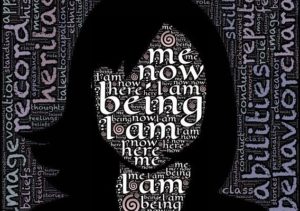To find a place where people can agree to disagree is a mammoth task nowadays. There is a growing trend of people forcing their perspectives on others. But why is it happening and how we, as a society, can prevent it? Why there is a fear of opposing viewpoint?
The much-awaited joy of section 377 being ruled out from the IPC got washed away as soon as a conversation erupted at my home. My spouse and I had differences of opinion about the matter and my 11-year-old son, who was in the same room heard one of us using the word ‘Gay’, and instantly reacted, ‘You both shouldn’t use such words. Do you even know the meaning of the word (gay)?
An educator for roughly 16 years, doing well in the education industry, I yet had no vision on how to tackle his appalling gesture that was a manifestation of a variety of mixed ideas that would have silently crept into him, irrespective of my open-minded upbringing. Undoubtedly, he must have heard a couple of such labels from his friends and schoolmates who too innocently carry ideologies from their respective environments. But here, I was blank and frozen on how to deal with his interrogation and if I may confess, helpless on how to break his stereotypes.
What I realise as a mother of a growing boy, however much a parent aims to bring up their children for the progressive future, ready to survive and be accepted in an open and wide panorama, many a time the same parent feels totally lonely and alienated from the results of their own parenting style since kids create a lot of their perceptions through diverse conflicts that they are exposed to through their peers.
It has, therefore, become very crucial to bring up children more cautiously than ever before. A careful monitoring of the kind of conversations we have at home, both in the formal, as well as the informal setup, play a pivotal role in their
concept building. Parents must maturely handle their clashes and need to understand that their own understanding might need to evolve from time to time. Times will change and so the obligation to allow their outlook to evolve as
well is the only redemption that can save many minds. Even if you are not convinced of a belief, both parents should portray differences less openly or accord enough respect to each other’s differences and diversities.
A culture of reading, among all family members, works like a tonic to heal prejudices. From reading folktales to young children to bringing awareness to them about the present needs of the children in America versus the needs of
children in Syria, influence their minds without biases and make them more prudent and compassionate global citizens. During reading followed by general interactions about such topics, even adults tend to untangle their own mental blockages. Undoubtedly, you are bringing a clearer perspective and understanding of the world in front of the child via books and real-life stories. Cinema has worked wonders in creating memories in a child’s mind. I still recall, watching ‘Jaane Bhi Do Yaaro’, a film that was ahead of its time, a dark comedy dwelling upon the rampant corruption and unemployment in the Indian society, as a child of seven. It worked as an introduction to the ‘REAL’
problems of my country, and not in a dull and depressive manner but through humour, which I acknowledge as a language teacher as the most effective tool to impart knowledge. Films like Amar Prem, Gudi, Milli, Anand, Forrest Gump, The Piano, Kramer vs Kramer, Rain Man, Not Without My Daughter, have made me accept today’s generation, who think beyond this age and era, more agreeably and positively than many of my colleagues.
It is time for us to stop targeting people with comments like ‘Look at him/her!’, rather we must reflect on our own way of thinking. Through this, we teach the next generation to ‘Hold on, Not Haste, Stop and Think’. It is best not to curtail their curiosity, no matter what the answers are, how weird and improper we think they might sound, but a fact will remain a fact and every atom of a thought is made up of some facts. Before we respond to them, think rationally, especially, the origin of the problem and the purpose of either abolishing or retaining it. If your responses differ from another party’s version, your views should reach the child in the most neutral tone, through which you teach the child to accept and respect whichever truth he feels is correct, teaching him/her that dissimilarities can be tolerated. Many parents prefer to not touch the so-called taboos, but their silence kills the capacity to question in their own child.
Moreover, the unattended mind provides room for preferences, which, unfortunately, did not even originate in his brains but are an offering in the most fragmentary form of the biased society. This untreated seed remains intact in
their formative cognizance, killing all other debates of right and wrong.
As adults, many of us have been choking our lives by allowing stereotypes that were injected without our permission, left to be dealt with recklessly, which regrettably have caged us since then. Learning from our ancestors’ mistakes, can we create uncorrupted and unpolluted metaphors in these budding minds? Can we allow children to crawl between spaces and find through unbiased Existences, what is My Truth, Your Truth or The Truth?

Author: Jyoti Gupta
The author has a distinguished service record spanning 16 years as an English teacher and Resource Consultant in some of the most prestigious schools of Delhi and NCR. A prolific writer, she is currently the In Charge for classes VII and VIII at Lotus Valley International School, Noida, wherein she leads a team of 625 students and 50 teachers with creative dynamism and verve.
You may reach her at jg80vt@gmail.com



Very very true in today’s parlance and as a parent I believe each word written here makes sense.. we should be careful about choices and the overall understanding, towards our kids as individual preferences need to be respected..
well written Jyoti..
Very well written, Jyoti.
Truth should ideally be The Truth, not yours or mine. We do carry so many stereotypes over generations but it a good change to see the current generation break stereotypes fearlessly and believe in The Truth. The environment definitely places a major role – good company and good conversation tops the list.
Keep writing.
Jyoti I think you have hit the nail in the coffin at the present dilemmas facing the parents today globally. In the rat race if making our children perfect academically, socially, emotionally, holistically we are robbing them of their innocence but with the quagmire of varied environmental milieu around our children I don’t really blame parent trying too hard. But your article speaks about the habit of reading, watching movies and keeping lines of communication open with your children and expressing dissent in subtle tones in front of your child without rubbishing the queries made by our young children was an apt description. Thanks for reiterating these concepts which we keep reading to upgrade our parenting skills yet keep forgetting to apply after reading them. Thank you Jyoti for enlightening the young parents and the parents to be. Regards. Lt Col Rahul Rai.
Wise words indeed. Love is love. If we can teach our children not to be judgemental, but to accept the choices people make in life and to live and let live – wouldn’t that be wonderful?
Such mesmerizing thoughts! We really appreciate your views and criticism. Stay tuned!